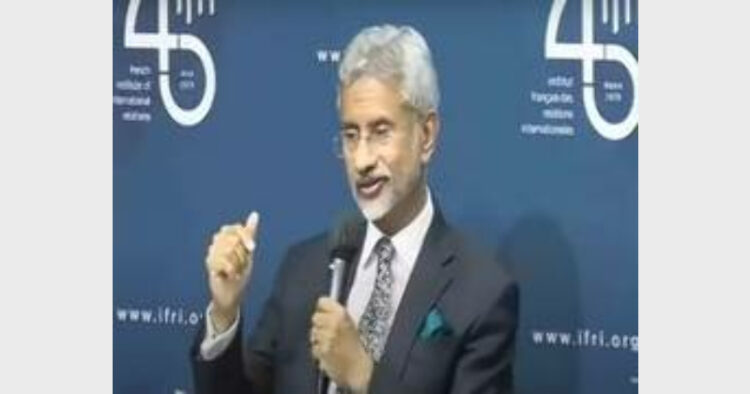EAM Jaishankar said being a neighbouring country, it is natural for India to offer food and COVID assistance to Myanmar and asserted that the support needs to be balanced with a commitment to democratic transition.
Paris [France], February 23: The democratic transition in Myanmar should not be derailed, said External Affairs Minister (EAM) S Jaishankar while emphasizing India's pro-democracy stance.
The minister's remarks came during an interaction at the French Institute of International Relations (IFRI) in Paris on the theme of 'How India sees France' on Tuesday.
On being asked about India's stance on the Myanmar situation, Jaishankar said that India has always been supportive of democratic forces and emphasized his point by citing India's contribution to the 1971 Bangladesh Liberation war.
"In Myanmar, we have a particular involvement as Aung San Suu Kyi grew up in India since her mother was an Ambassador. The last time when the military rule came to an end and elections were held in Myanmar, we worked with her and others to strengthen the democratic transition. However, a year ago events went in a different direction. But like the rest of the world, we are very clear that democratic transition should not be derailed," he stated.
Speaking on challenges faced by India, being a neighbouring country of Myanmar, Jaishankar said that apart from border security, the country is also concerned about the spread of COVID-19 through the border areas.
"We are also seeing an increasing number of refugees coming over to India due to food shortage and humanitarian problem in Myanmar. We believe that it is unavoidable to engage the regime there currently on matters which are necessary for our interests," he added.
Jaishankar further said being a neighbouring country, it is natural for India to offer food and COVID assistance to Myanmar. However, he asserted that the support needs to be balanced with a commitment to democratic transition.
Myanmar has been in turmoil since the coup on February 1, when the country's military-led by senior General Ming Aung Hlaing toppled the Aung San Suu Kyi-led civilian government and declared a year-long state of emergency. The coup triggered mass protests and was met by deadly violence throughout the country.
In August last year, Min Aung Hlaing declared himself Prime Minister of a newly formed caretaker government. During an address to the nation on August 1, he repeated a pledge to hold elections by 2023.
More than 1,000 civilians have been killed by Myanmar security forces while thousands of others arrested, according to the United Nations, amid a crackdown on strikes and protests which derailed the country's fragile democracy and prompted international condemnation. (ANI)














Comments